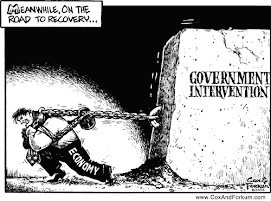Jonathan Stempel in his July 16th Reuters article, stated that Countrywide Financial Corp CFC, has added jobs in every month for the first half of this year. While other banks and mortgage companies where closing or severely scaling back, Countrywide viewed the drying up of the subprime funding market as an opportunity to grab market share.
Through July, the Calabasas, California-based company said it ended July with 61,586 staffers, up from 59,011 in May and 54,655 at the beginning of the year. As competitors where closing Countrywide’s revenues continued to grow.
Stuart Plesser, an analyst at Standard & Poor's, said their increase in loan volume may not be all that it seems:
“Much of Countrywide's volume gains in June came from correspondent lending -- where the company buys loans from other lenders -- rather than from more profitable retail lending,...”
“June correspondent lending grew 43 percent to $21.88 billion. Retail lending fell 5 percent to $14.04 billion. The loan servicing portfolio grew 18 percent to $1.42 trillion.”
Just four weeks later Countrywide experienced a run on its banks. From the LA Times:
“At Countrywide Bank offices, in a scene rare since the U.S. savings-and-loan crisis ended in the early '90s, so many people showed up to take out some or all of their money that in some cases they had to leave their names.”
Countrywide immediately drew down their credit lines of 11.5 billion they had with 40 banks. This bought the company some time, but the real shot-in-the-arm came a week later when Bank of America invested $2 billion in convertibles. That gave B of A a 16% ownership stake and $145 million in annual income from the 7.25% interest convertibles.
With funding for nonconventional loans disappearing, Countrywide has said that they will emphasize their mortgage activities on the mundane “plain vanilla” mortgages that Freddie and Fannie can purchase. The change in emphasis from the companies aggressive pursuit of subprime lending to “plain vanilla” mortgages has caused Countrywide to lay offs of 500, 900 and now as many as 12,000.
On September 7 Countrywide put out a Press Release and stated that they plan to fund their subprime loan activity internally. “Migration of the Company's residential lending business into its federally chartered thrift entity, Countrywide Bank, FSB, will continue.” With the portfolio of subprime loans showing abysmal results, the profits from these loans must be excessive.
From a Gretchen Morgenson article for the The New York Times:
“Countrywide's entire operation, from its computer system to its incentive pay structure and financing arrangements, is intended to wring maximum profits out of the mortgage lending boom no matter what it costs borrowers, according to interviews with former employees and brokers who worked in different units of the company and internal documents they provided. One document, for instance, shows that until last September the computer system in the company's subprime unit excluded borrowers' cash reserves, which had the effect of steering them away from lower-cost loans to those that were more expensive to homeowners and more profitable to Countrywide.”
“Homeowners, meanwhile, drawn in by Countrywide sales scripts assuring ''the best loan possible,'' are behind on their mortgages in record numbers. As of June 30, almost one in four subprime loans that Countrywide services was delinquent, up from 15 percent in the same period last year, according to company filings. Almost 10 percent were delinquent by 90 days or more, compared with last year's rate of 5.35 percent.”
“Many of these loans had interest rates that recently reset from low teaser levels to double digits; others carry prohibitive prepayment penalties that have made refinancing impossibly expensive, even before this month's upheaval in the mortgage markets.”
'In terms of being unresponsive to what was happening, to sticking it out the longest, and continuing to justify the garbage they were selling, Countrywide was the worst lender,'' said Ira Rheingold, executive director of the National Association of Consumer Advocates. ''And anytime states tried to pass responsible lending laws, Countrywide was fighting it tooth and nail.'
“Mr. Mozilo has ridden this remarkable wave to immense riches, thanks to generous annual stock option grants. Rarely a buyer of Countrywide shares — he has not bought a share since 1987, according to Securities and Exchange Commission filings — he has been a huge seller in recent years. Since the company listed its shares on the New York Stock Exchange in 1984, he has reaped $406 million selling Countrywide stock.”
One very unhappy customer of Countrywide has a website, Countrywidehomeloansucks.com where hundreds of unhappy customers and ex-employees have told their stories. It does not paint an admirable picture of the company.










